What Just Happened?
The biggest thing that happened over two nights of debates is that Joe Biden survived. Cory Booker, Kirsten Gillibrand, and Kamala Harris raised his old, unpopular views on race, gender, crime, and everything else. He answered without really answering — by pointing to Barack Obama, and by talking about his own life with a depth of emotion that’s always been why people like him. But Booker made clear how vulnerable Biden remains on the biggest of them, his record on criminal justice.
And Biden’s main rivals only grew stronger. That’s partly because the Democrats have discovered what used to be true only for Republicans: Their voters don’t like the media, and respect them for refusing to take the moderators’ bait, as Elizabeth Warren and Bernie Sanders proved Tuesday night.
The Policy Stakes:
The overwhelming focus on health care follows the party’s strategy of making Obamacare the central issue in the 2018 midterms. But health care in America — obviously a mess — isn’t the main thing that’s changed since 2016. Obamacare has, so far, survived Trump’s assaults and a Republican legal campaign. It’s an important issue — but more important than Trump’s racism and authoritarianism, than climate change, or than profoundly different ideas about how to run the American economy that underlie the argument about health care? Worse than it was in 2004, 2008, 2012, or 2016? That’s a hard case to make. And whoever wins will fight to drag the health care system exactly as far to the left as Congress will allow.
So why make it so central? Well — it’s a measurable, detailed proxy for where the Democratic Party stands on the question of the role of government, and capitalism versus socialism. It’s a way for the candidates to be clear about where they stand — not on the details of health care policy, but on the big economic questions.
The Political Stakes:
Why Inslee and de Blasio are the best of the rest: So many minor candidates! Most of them are running on the general theory they’d be pretty good at being president. That’s a tough thing to communicate. The clearest exceptions are Washington Gov. Jay Inslee and New York Mayor Bill de Blasio, who aren’t talking about themselves. They have clear things to say about central, substantive questions that the others have to reckon with. Inslee has thought deeply about climate change and has concrete, optimistic solutions. (Also, he seems to have emerged as unexpectedly hot.)
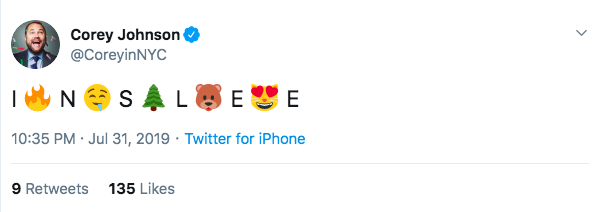
De Blasio speaks for the unapologetic left, incredulous at any defense of capitalism, gleeful to mix it up with Joe Biden. He’s also “basically adopt[ed] the tone and approach of an adversarial NY journo,” Chris Hayes noted.
(Two other candidates cut through on the debate stage: Tulsi Gabbard and Andrew Yang. But neither really engaged the rest of the candidates, or play any particular role in the conversation once the lights are off.)
What about Marianne? We had Marianne Williamson on AM to DM, the BuzzFeed News morning show, last Friday. Our headline was, "Marianne Williamson Said Antidepressants Are Overprescribed For 'Normal Human Despair.'" Like most headlines, it called attention to what we thought was a surprising remark, kooky by the standards of 2019’s medical consensus. The overwhelming response on Twitter: We are assholes, and Marianne had a point. It reminded me of something a Williamson staffer told me in Miami: That when she visits TV studios, journalists sneer at her, but makeup artists stan her. Last night, as you may have noticed, Tulsi Gabbard echoed Williamson’s line that we don’t have a health care system, we have a sick care system. She’s speaking a totally different language than the rest of the candidates, and it’s working for a reason.
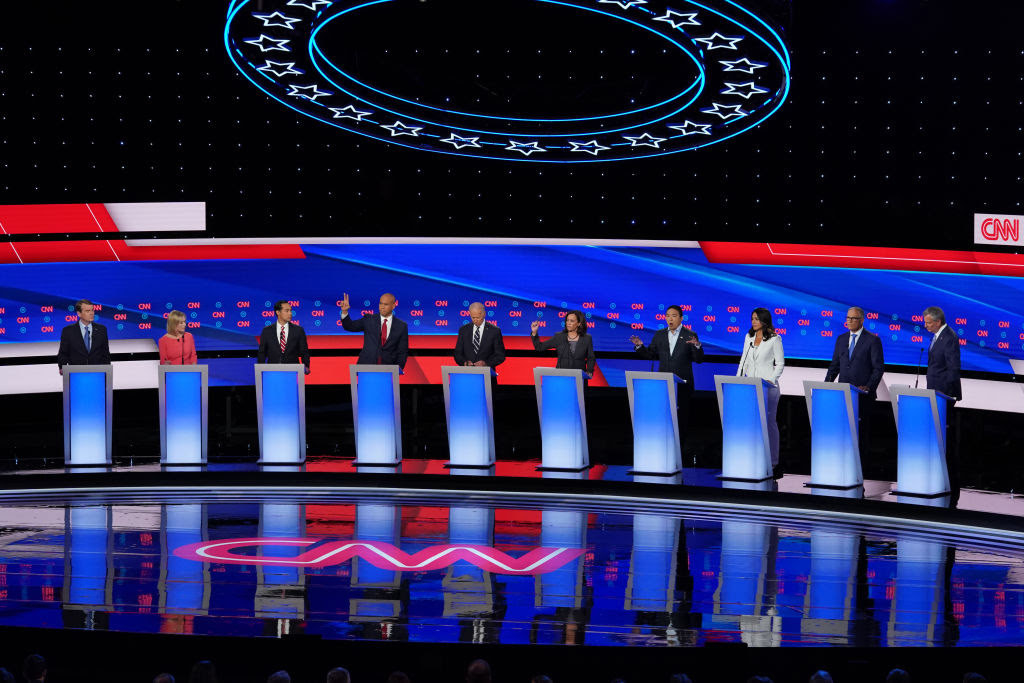
Texting With...Gov. Steve Bullock
Our readers told us in a survey earlier this year that you mostly just want to figure out who these people are. So we’re launching a series of informal weekly interviews via text.
Steve Bullock, the Montana governor who entered the race this week, agreed to be our first victim, as he tries to figure out how his debate appearance can lift his campaign into the fall. Here’s how he’s thinking about what just happened, about social media, and about, uh, nuclear proliferation.
And as you’ll see, this format gets a little more normal as the conversation wears on:
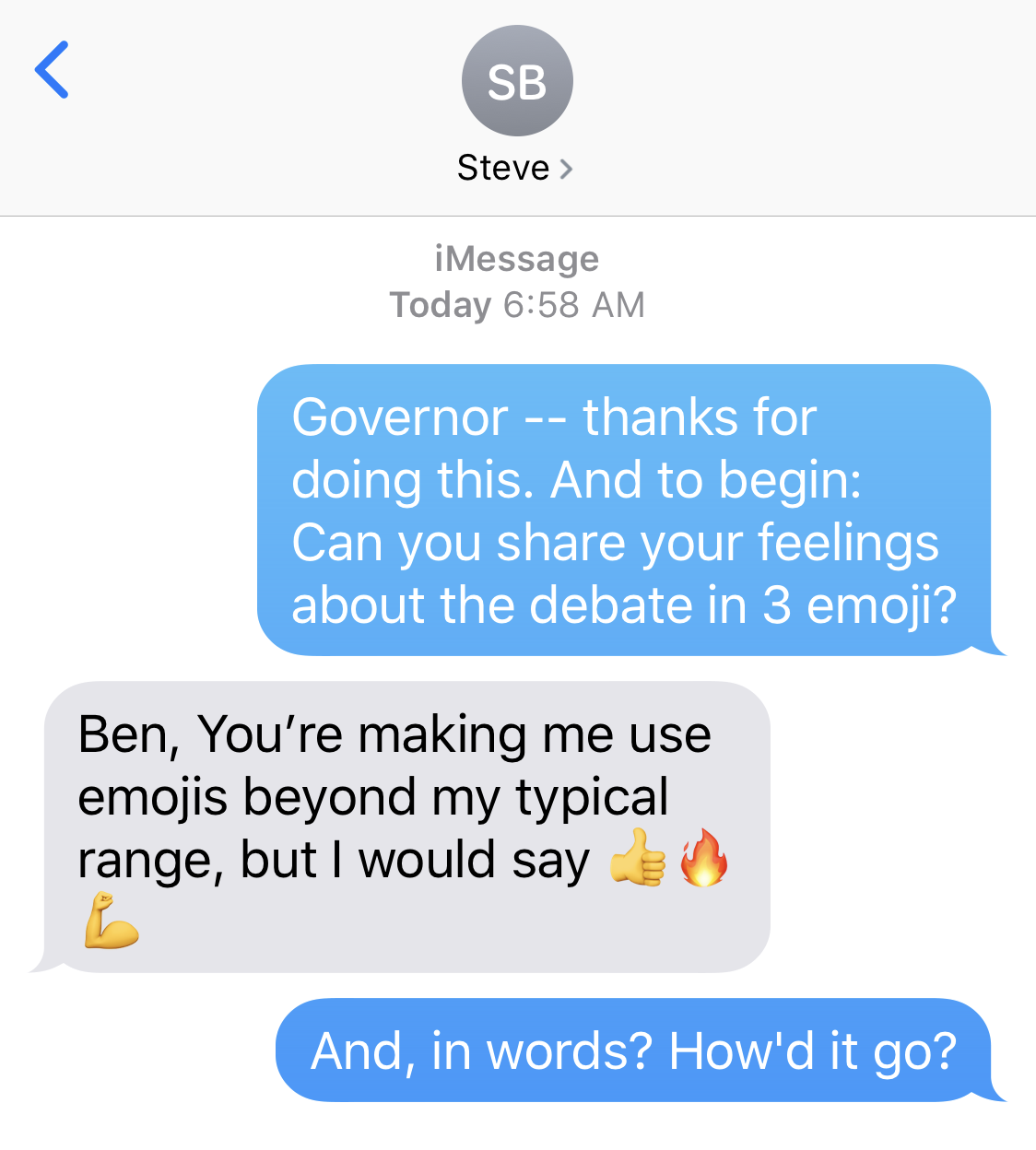
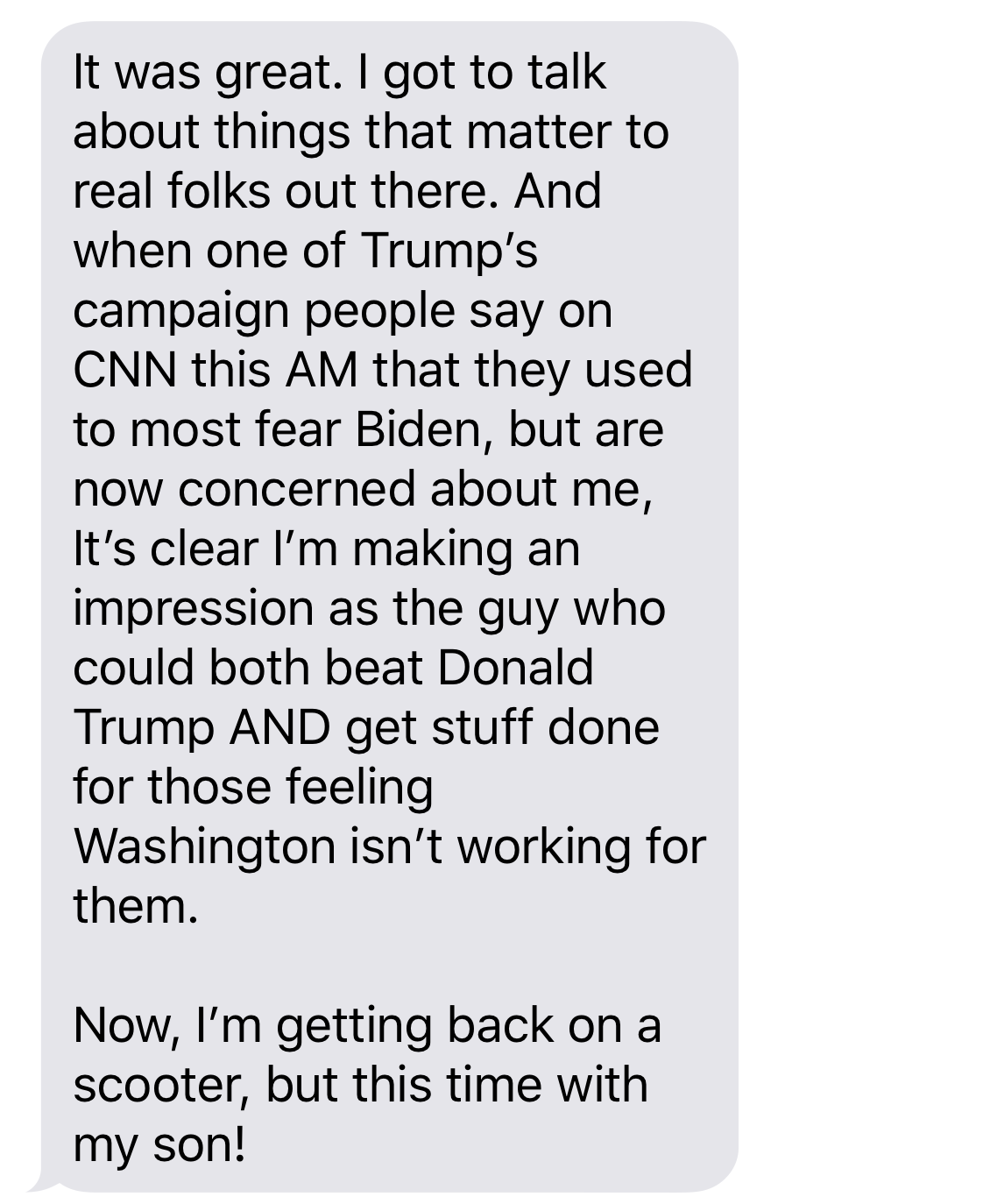
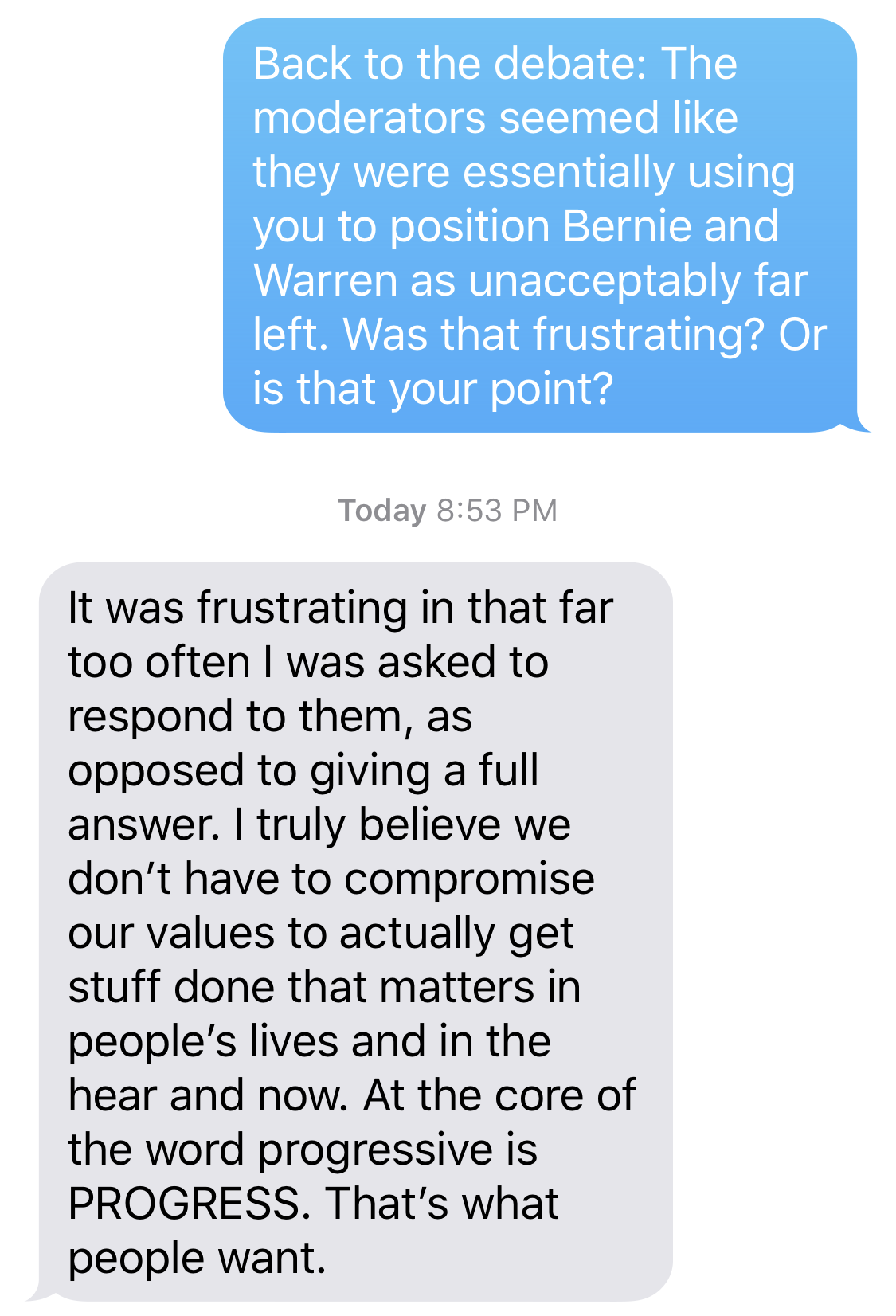
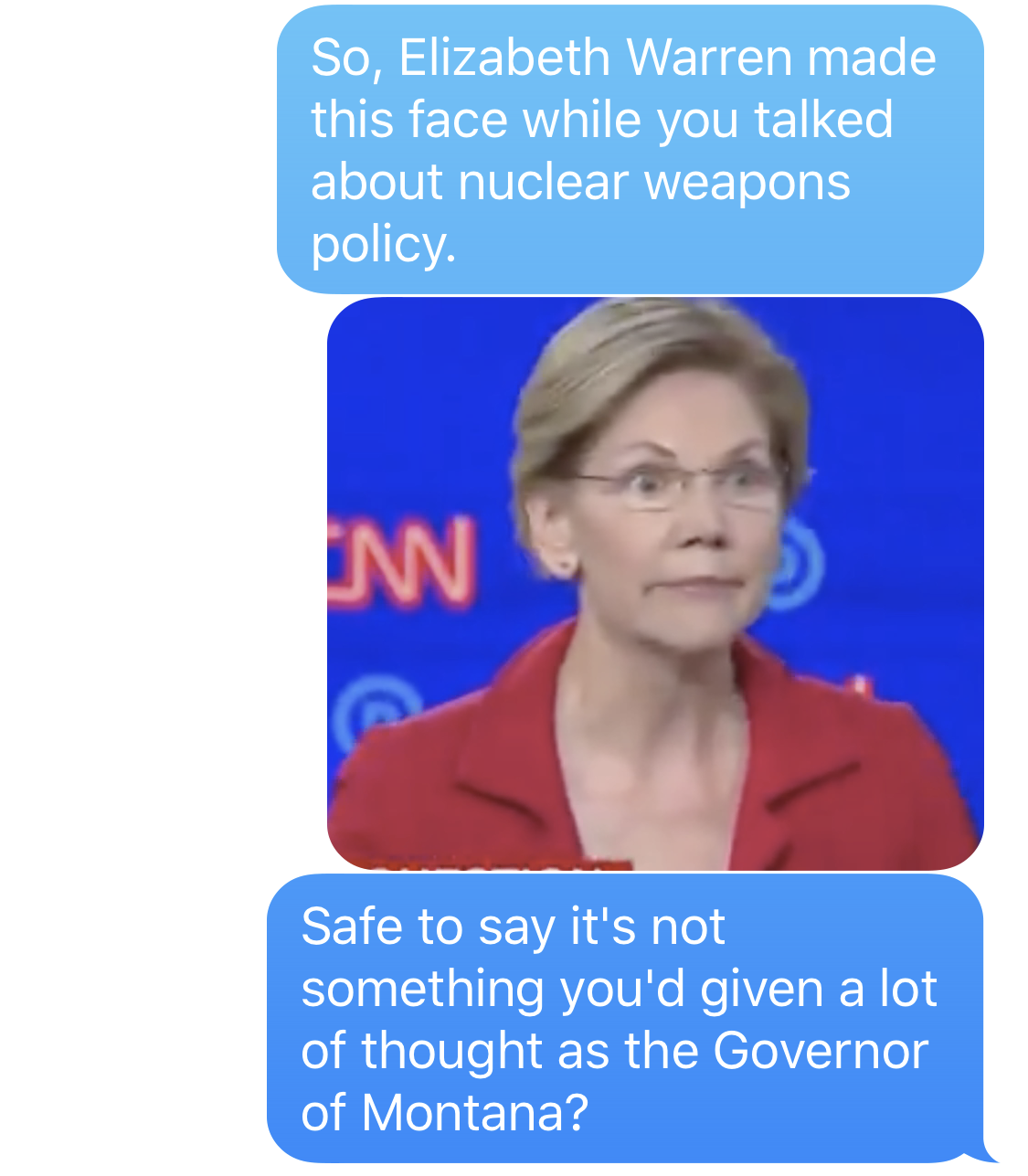
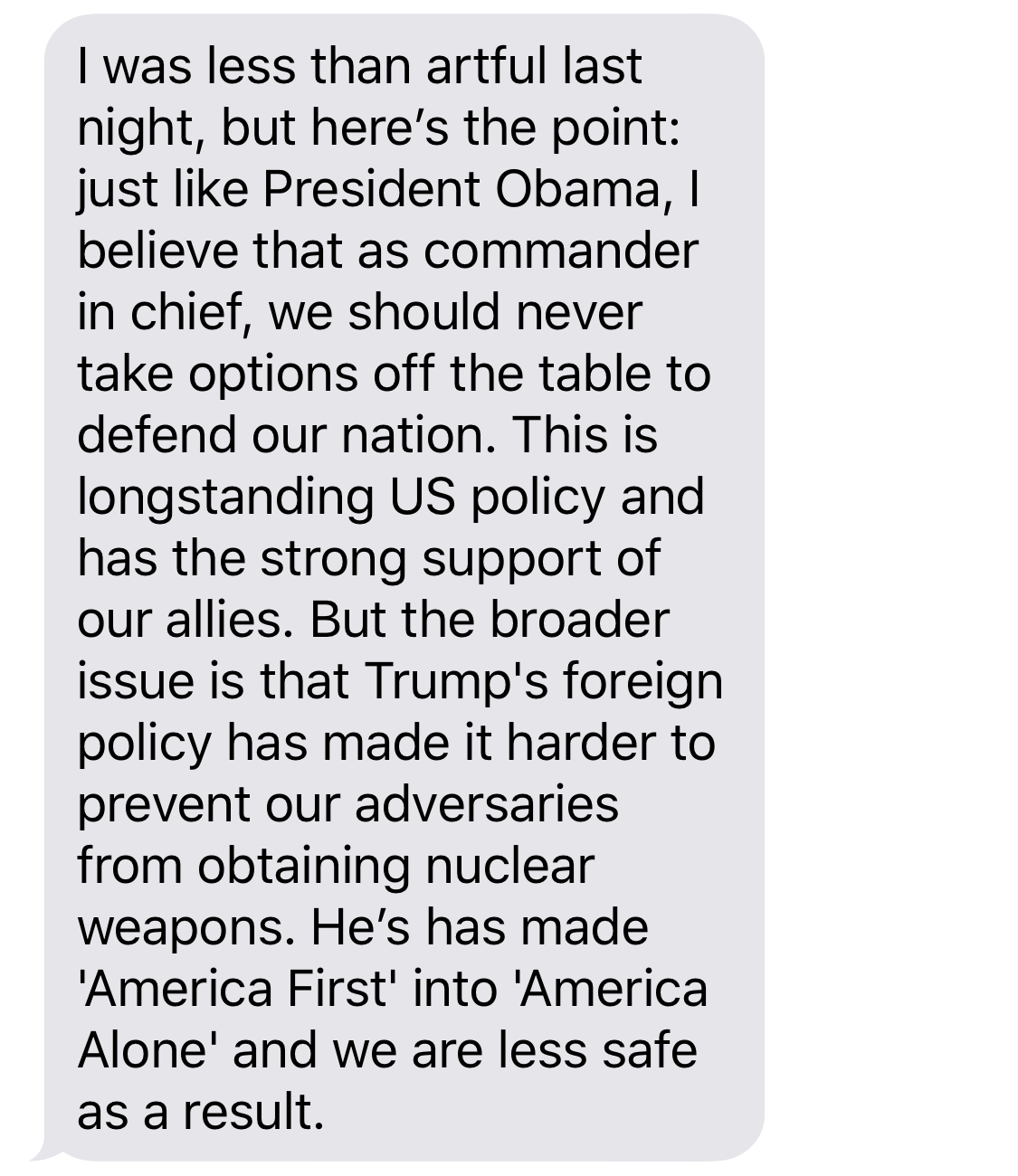
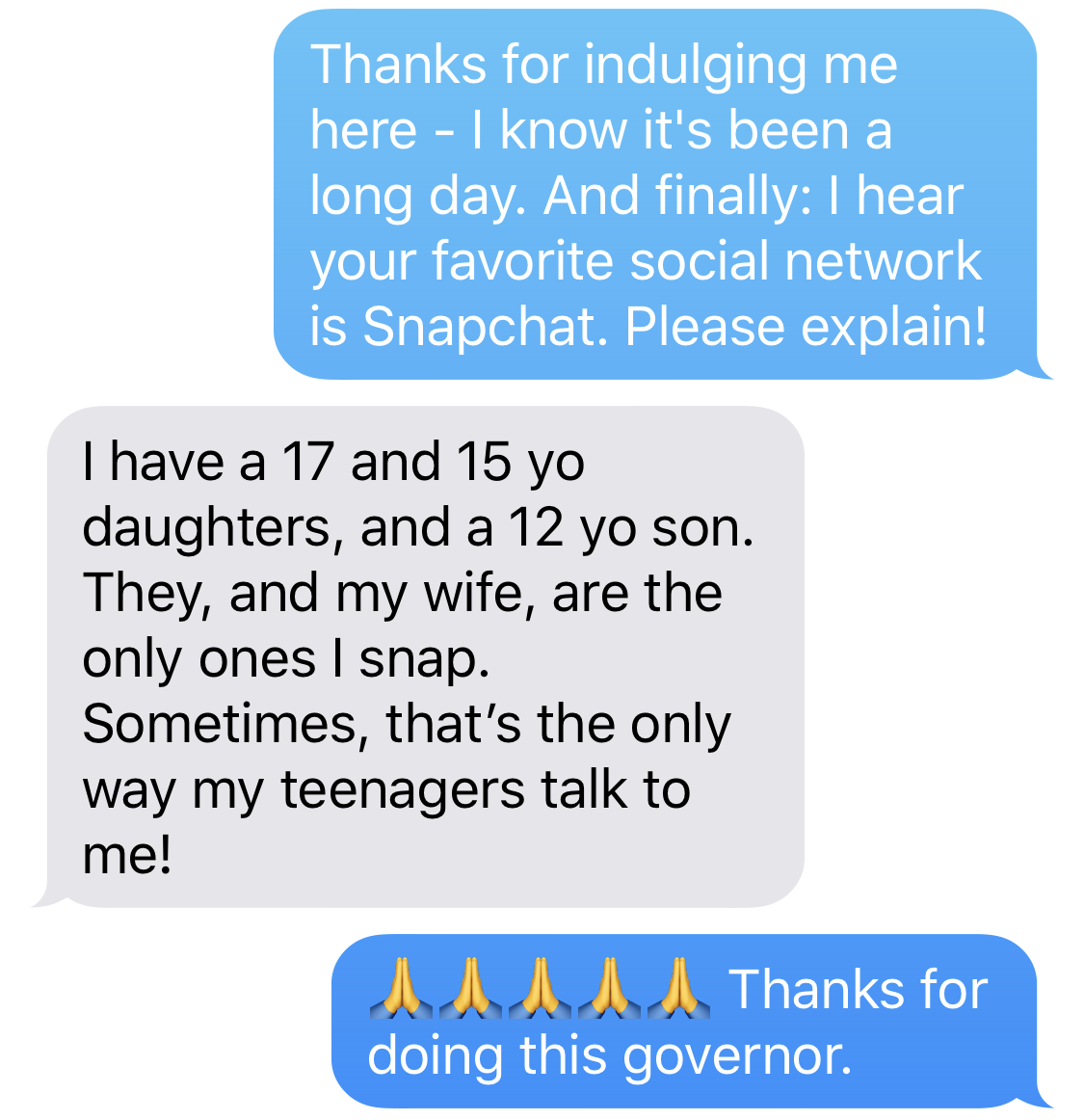
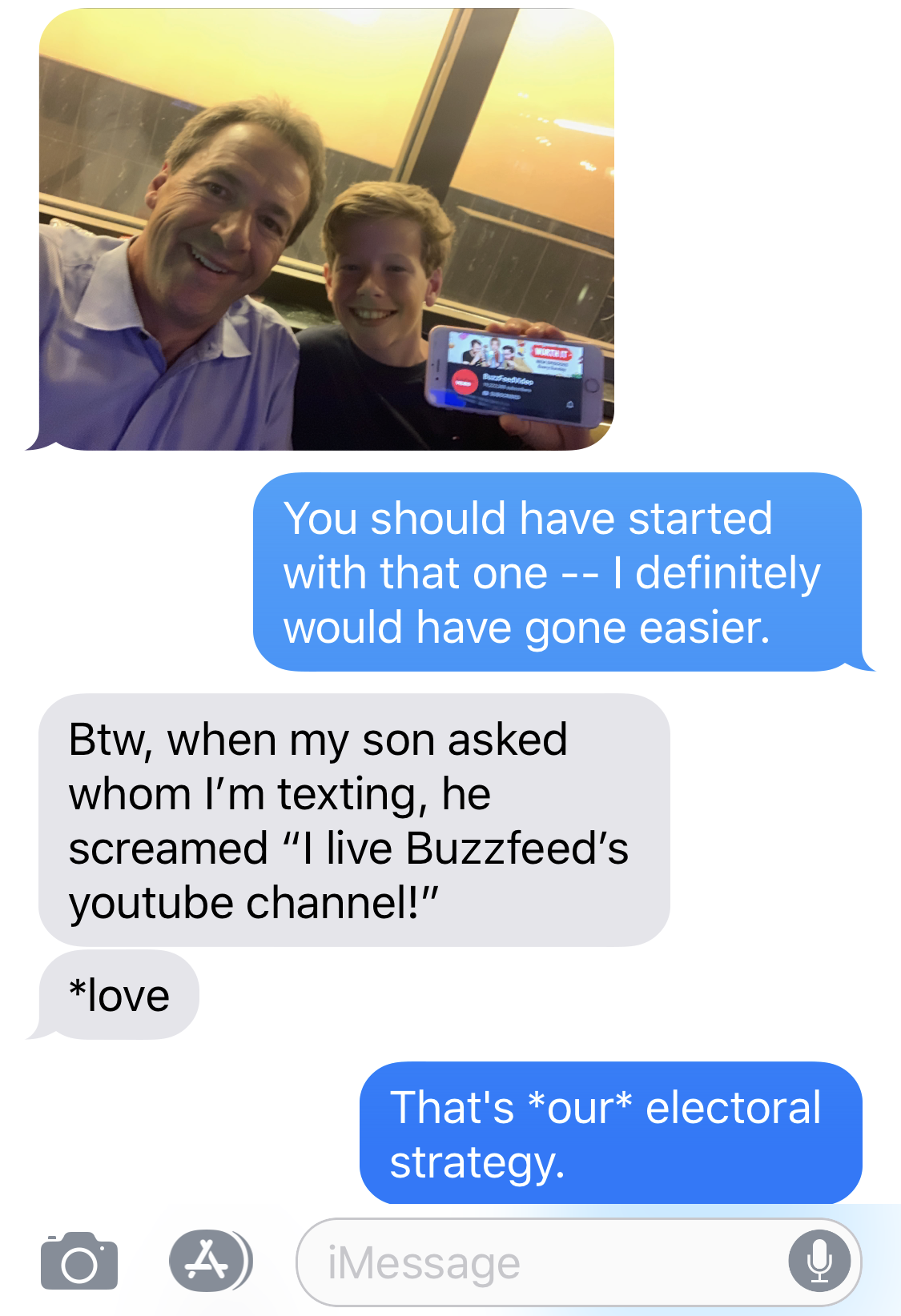
On The Trail With BuzzFeed News
Former vice president Joe Biden told Kamala Harris to "Go easy on me, kid" minutes before Wednesday’s debate. His comment was caught by a hot mic, and the internet. Some people on Twitter saw it as a typical Biden remark, but a lot of people thought it was really condescending.
South Bend Mayor Pete Buttigieg wasn’t able to talk in-depth about his plan to address systematic inequality at Tuesday’s debate. Americans tuning in Tuesday saw a debate featuring only white candidates that barely touched on the issue of racial inequality, and for Buttigieg, who has around 0% support among black voters, it was a missed opportunity.
Michigan Gov. Gretchen Whitmer is telling Democratic candidates to not get distracted by Donald Trump. A lot of candidates are reaching out to her for advice, after her election last year signaled that a big key state to Donald Trump’s surprise victory could swing back to her party in 2020. What’s she telling them? “People are less focused on the president’s Twitter feed and more worried about feeding their families.”
Bring On The Gifs
One thing these debates produced were some iconic gifs — see them all here — but for my money, this is the one that best captures the moment:
